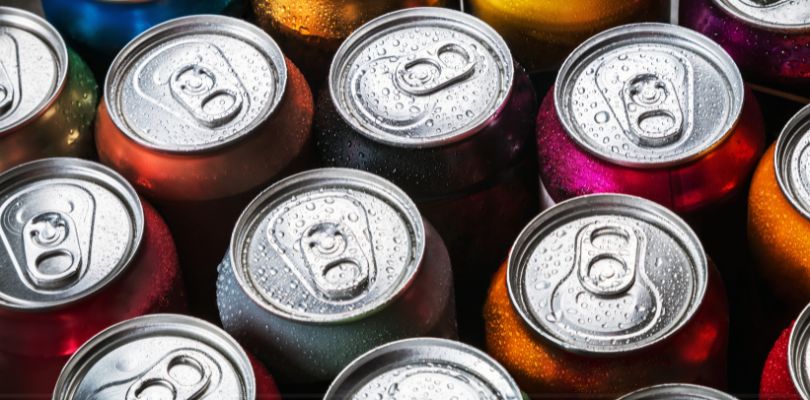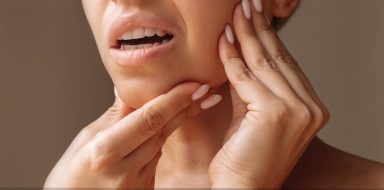Remove These Drinks From Your Diet
Prostate cancer is a common diagnosis for men, particularly as they age, and managing it requires a comprehensive approach. While medical treatments are the cornerstone of addressing prostate cancer, lifestyle factors, including diet and drink choices, play an important role in supporting overall health and potentially influencing cancer progression. Certain drinks can negatively affect prostate health or interfere with the body’s ability to fight cancer. In this article, we will explore the worst drinks to avoid with prostate cancer and explain why they should be avoided.
1. Sugary Beverages
Sugary beverages such as sodas, sweetened iced teas and fruit juices with added sugars are among the worst options for people diagnosed with prostate cancer. High sugar intake is linked to increased inflammation throughout the body, which can worsen cancer outcomes. Inflammation can fuel cancer cell growth and may also interfere with the body's immune system, making it harder to fight off disease. Additionally, sugary drinks contribute to weight gain and obesity, both of which are risk factors for more aggressive forms of prostate cancer.
Beyond the direct effects on cancer, these beverages provide empty calories without any significant nutritional benefit. Consuming sugary drinks can also lead to insulin resistance, a condition that is closely tied to cancer development and progression. Prostate cancer patients should aim to reduce or eliminate these drinks from their diet, replacing them with water or unsweetened beverages that promote hydration without the negative effects of sugar.
2. Alcohol
Alcohol consumption, especially in excess, can be harmful for prostate cancer patients. Research has suggested that drinking alcohol regularly may increase the risk of prostate cancer progression. Alcohol affects liver function, impeding the body’s ability to metabolize and remove toxins efficiently. For individuals undergoing treatments such as chemotherapy or radiation, compromised liver function can make it harder to process these therapies effectively.
Moreover, alcohol weakens the immune system, making it harder for the body to fight infections or recover from cancer treatments. Heavy alcohol consumption is also associated with dehydration, which can exacerbate the fatigue and urinary problems common in prostate cancer patients. Reducing or avoiding alcohol is a crucial step in supporting overall health during cancer treatment and recovery.
This article will explore tardive dyskinesia, looking at dietary considerations, signs and treatment options. Read on to learn more.
3. Caffeinated Drinks
Caffeinated drinks such as coffee, energy drinks and caffeinated sodas may not directly increase the risk of prostate cancer, but their side effects can cause issues for patients managing the disease. One significant concern is dehydration. Caffeine is a diuretic, meaning it increases urine output, which can lead to dehydration if consumed in large quantities. Staying hydrated is vital for cancer patients, as it helps the body flush out toxins and maintain energy levels.
Caffeine can also irritate the bladder, which is problematic for prostate cancer patients who often experience urinary symptoms, including increased frequency or urgency of urination. By reducing or eliminating caffeinated drinks, patients can help alleviate these symptoms and avoid additional stress on the bladder.
4. Dairy-Based Drinks
Dairy-based drinks, including whole milk, milkshakes and cream-based beverages, are another category of drinks that prostate cancer patients should consider limiting. Studies suggest that high consumption of dairy products, particularly those that are full-fat, may be linked to an increased risk of prostate cancer progression. The reason for this connection is not fully understood, but it is believed that the saturated fats and certain hormones found in dairy products may promote cancer growth.
Moreover, excessive dairy intake has been associated with elevated calcium levels, which, when too high, may contribute to more aggressive prostate cancer. For those who are concerned about calcium intake, alternative sources such as plant-based milks or leafy green vegetables can provide the necessary nutrients without the potential risks posed by dairy.
5. Processed Fruit Juices
Processed fruit juices, especially those with added sugars or preservatives, are problematic for prostate cancer patients. While fruits contain valuable vitamins and antioxidants, processed juices often strip away the fiber and concentrate the sugar content, turning them into a less healthy option. High sugar levels in processed juices can lead to inflammation and insulin spikes, both of which are detrimental to overall health and cancer management.
In contrast, consuming whole fruits allows individuals to benefit from the fiber, which helps regulate blood sugar levels and supports digestive health. Prostate cancer patients should be wary of processed juices and opt for fresh, whole fruits or make their own juice at home without adding extra sugars.
6. Energy Drinks
Energy drinks are particularly harmful for prostate cancer patients due to their high levels of caffeine, sugar and artificial ingredients. These drinks can cause rapid spikes in blood sugar and insulin, leading to inflammation and weight gain. Both of these factors can negatively impact prostate cancer outcomes by promoting the conditions that fuel cancer growth.
Additionally, energy drinks contain artificial additives and preservatives that can be taxing on the liver and kidneys, organs that are already under stress during cancer treatment. The high caffeine content in these drinks can also exacerbate dehydration, leading to increased fatigue and urinary issues. For these reasons, prostate cancer patients should avoid energy drinks and opt for healthier alternatives like water or herbal teas.
Final Notes
Managing prostate cancer involves more than just medical treatments. Dietary and lifestyle choices, including the types of drinks consumed, can significantly influence overall health and the body’s ability to manage the disease. Sugary beverages, alcohol, caffeinated drinks, dairy-based drinks, processed fruit juices and energy drinks all pose risks for prostate cancer patients due to their impact on inflammation, hydration and cancer progression. By avoiding these drinks and opting for healthier alternatives, prostate cancer patients can support their treatment plans and improve their overall well-being.







